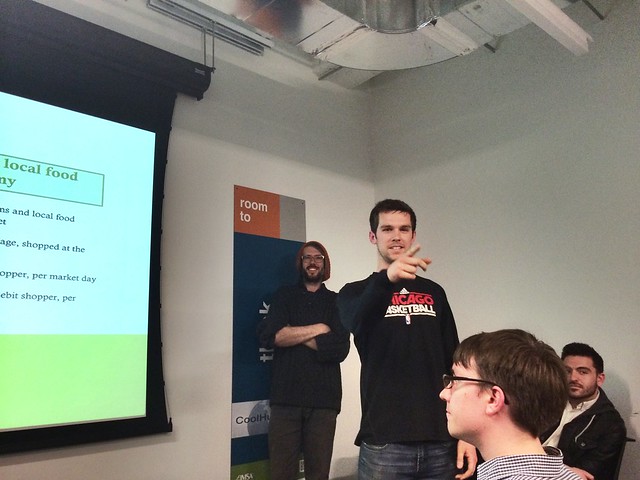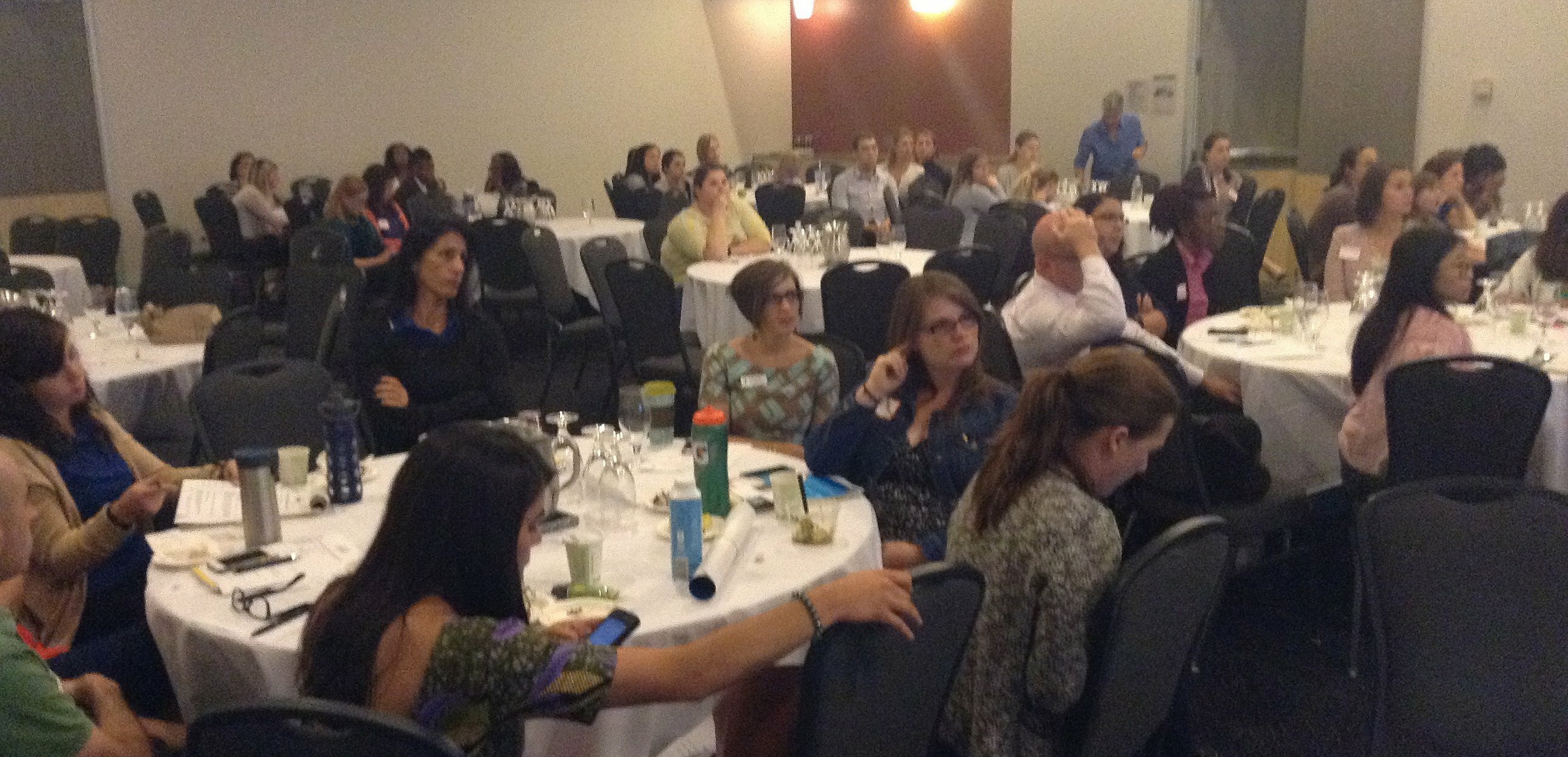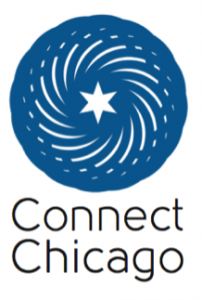On April 29th, we heard from Danny Burke and Daniel Evans from Experimental Station will talk about the 61st Street Farmers Market including their food access programs around food stamps, value incentives, table counts and consumer behavior within the context of food justice on the south and west sides of Chicago.

The Experimental Station is working to build independent cultural infrastructure on the South Side of Chicago. They do this by fostering a dynamic ecology of innovative educational and cultural programs, small business enterprises and community initiatives. Since 2006, They’ve built their own programming to address a variety of identified local needs and have fostered, hosted, and sponsored numerous other initiatives.
Here’s Danny explaining what they’re about:
One of their major programs is working with the 61st Farmers Market to help them make the farmers market make healthy food more accessible. To do this, Experimental Station works with the City of Chicago to provide LINK card service (food assistance) at City-run farmers markets including 61st Street Farmer’s Market. The market is set up so that they will match their LINK dollars. So, a customer can buy $20 worth a fresh food with $10 worth of fresh food. Originally launched as pilot program in 2010, the City has contracted with Experimental Station to provide LINK acceptance at markets all across the city. Here’s Burke explaining how the program works.
Not only is experimental station running the program, they’re also collecting data on what’s purchased at the Farmer’s Markets. Here’s Burke busting the myth that people with lower income don’t want healthy food.
This information is also rolled up into data gathered from LINK card usage:
The 61st Street Market shows that their program vastly increased the amount of fresh foods bought with LINK dollars. Experimental Station takes all the data gathered from the farmers market and LINK card information to better understand that market and make the case for greater food accessibility. Here’s Burke explaining their efforts to perform data analysis on this data starting with people at the farmer’s markets with clipboards.
The data from the LINK card can only do so much since they can’t pull individual purchases and can only get information on a monthly basis. They have, however, been able to pull information from other programs around the country. This is going to be used to help push to integrate dollar for dollar matching into federal legislation.
Food insecurity continues to be a topic that gets a lot of attention in the news. Here’s Evans going over a quick list of recent news stories about food insecurity.
With the arrival of spring, Experimental Station is gearing up to open the Farmers Market on May 16th. Here’s Burke and Evans talking about how the program will continue.
As always, the speakers stuck around to answer questions from the audience.
For more information about Experimental Station and the 61st Street Farmer’s market, you can visit their website at http://experimentalstation.org/






